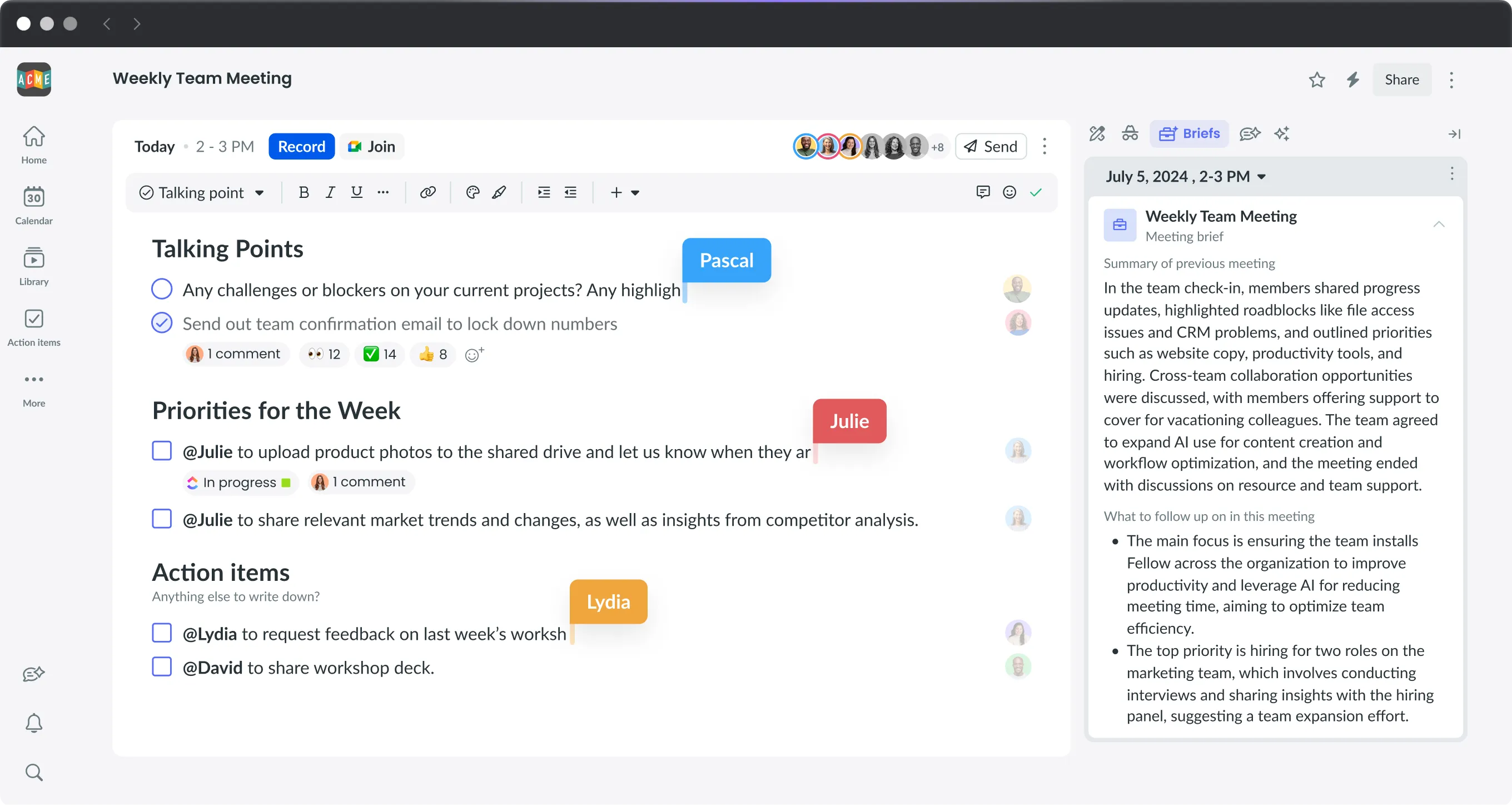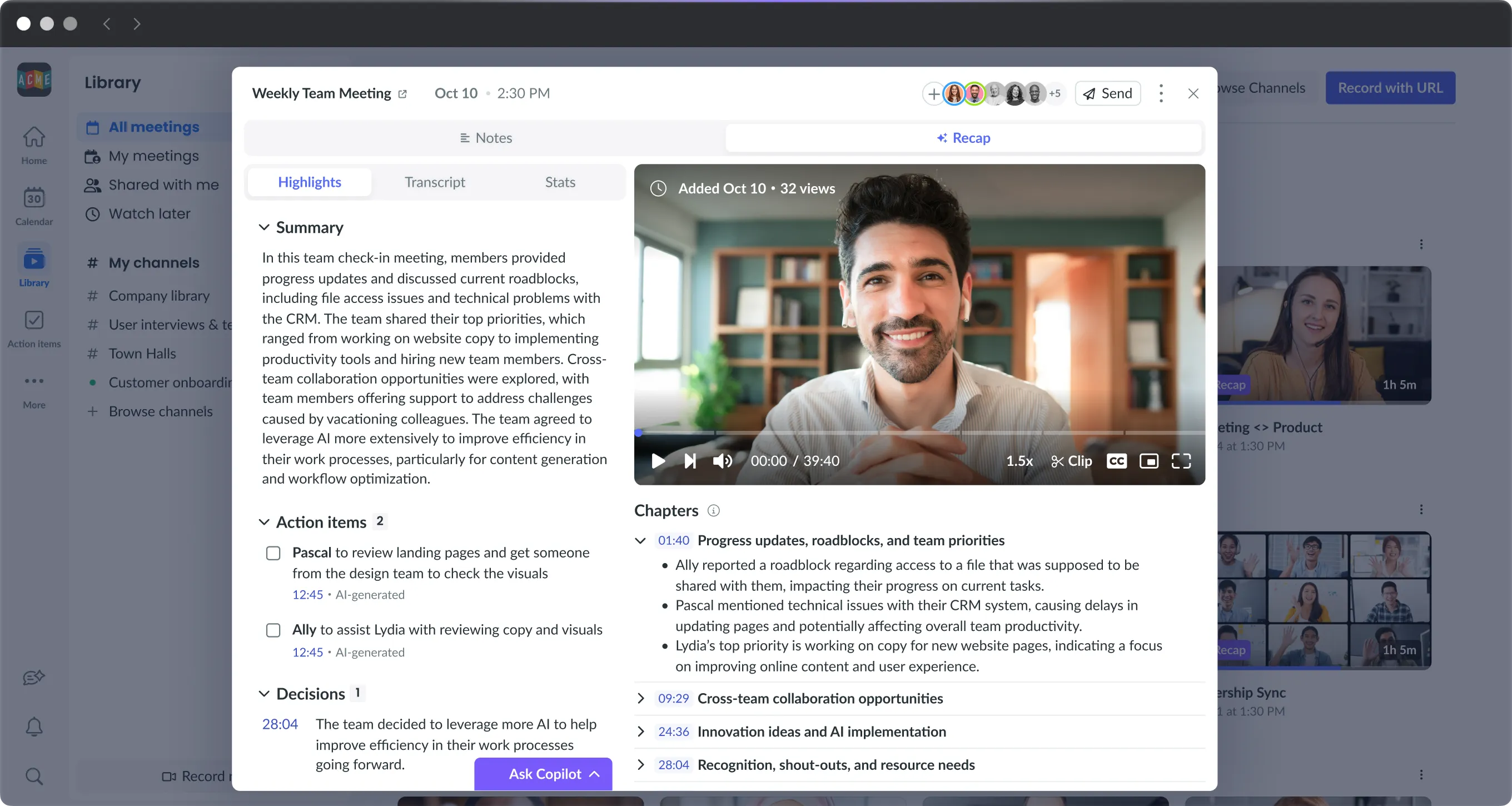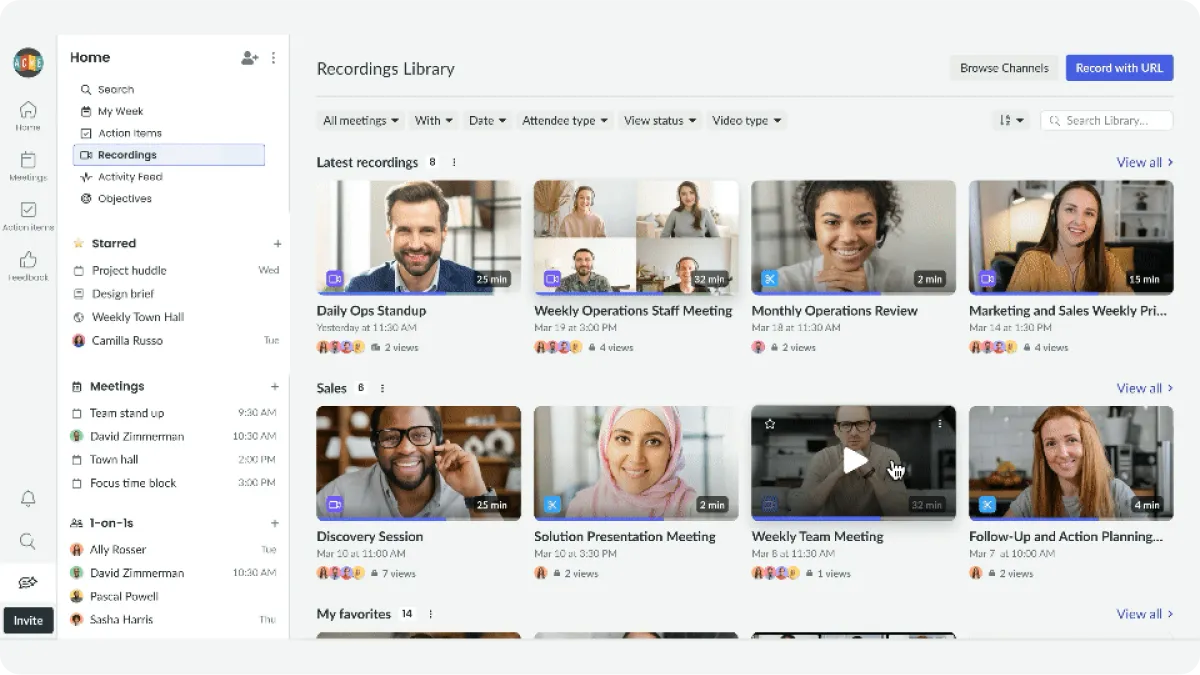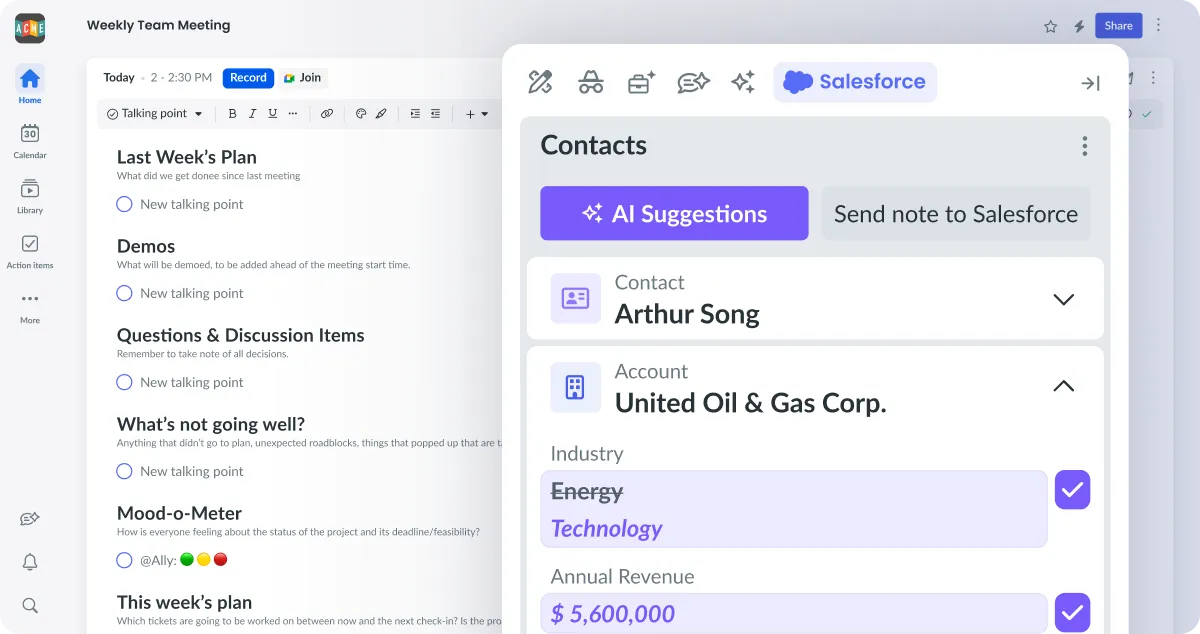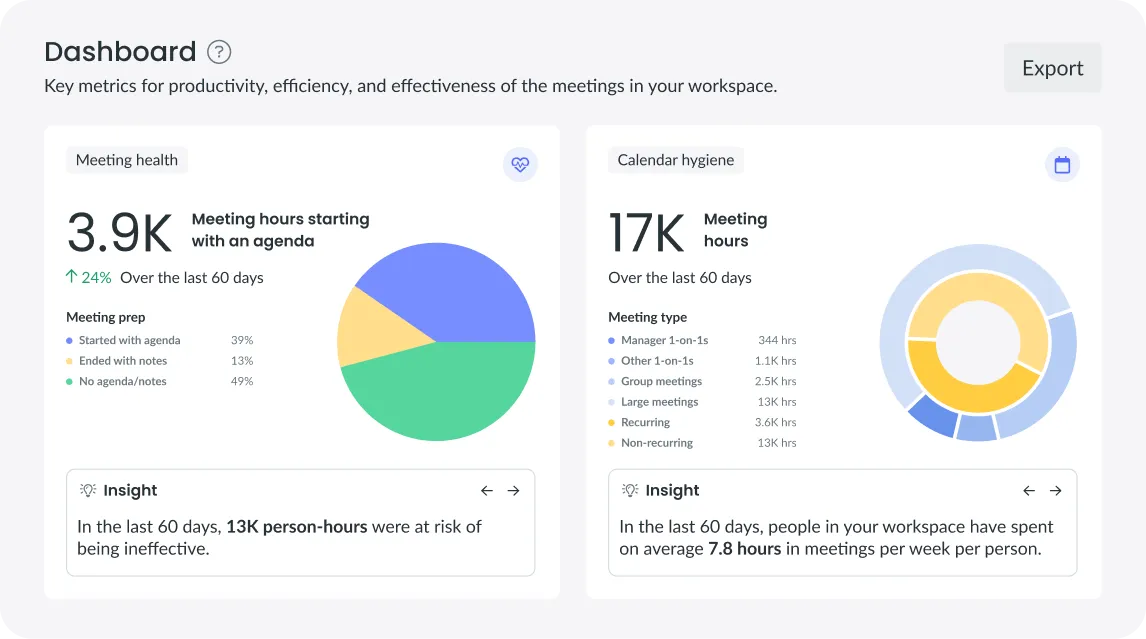Fellow is the only AI meeting assistant with the privacy and control settings to ensure your centralized meeting recordings, notes, and summaries are only accessible by the right people.
Automatically capture meeting notes and action items
Get the most accurate meeting transcription- automatically! Fellow joins your meetings and takes notes and action items for you so you can focus on the discussion.
Ask Fellow
Get insights across your meetings with your own AI meeting chatbot. Prompt “Ask Fellow” to catch you up on meetings you missed, answer questions about specific meetings, and even write follow-up emails after a meeting.
All your recordings and recaps in one place
Fellow’s library keeps all your recordings in one place. Privacy and sharing controls mean you can keep everything centralized while controlling who has access.
Automate CRM updates
Keep your CRM updated, automatically. Fellow syncs information from your meeting and will even suggest fields to update based on what was discussed.
Always show up prepared
Collaborative agendas and pre-meeting briefs mean you’re always prepared for an effective meeting — even when you’re in back-to-back meetings.
Built for every team


What our customers are saying
"Meeting load disappeared because meeting efficiency increased."
Alan King
CEO at Workplace Options
"Fellow has been a huge timesaver for us. With Fellow, I don’t even have to join meetings. I can ask Fellow to take notes and I can catch up on what was talked about if I’m not able to join the call."

Sean Santschi
Product Leader at Motive
"I would definitely recommend Fellow to other companies because of the ease of use, the simple interface, and all of its integrations with different software."

Emilia Ceballos
Chief of Staff at KitchenSync
"Our most important resource is our people, and their most important resource is their time. Fellow has been instrumental in breaking down some of the silos that we have."

Stephen Hull
VP of Customer Experience
at Dynatrace
"With Fellow, my team is clear on what they’re responsible for bringing to the meeting. It’s helped a lot with time savings, efficiency, but also accountability."

Sarah Mercedes
Senior Sales Manager at HubSpot

